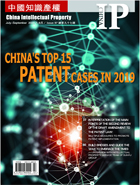The adjudication rules established in this case not only have a guiding effect on whether to allow the parties to withdraw the prosecution during the second instance in patent confirmation cases, but also have reference significance for whether the court of the first instance permits the withdrawal of the prosecution in patent confirmation cases.
First-instance case number: (2018) Beijing 73 Administrative Judgement No. 1327
Second-instance case number: (2019) Beijing Administrative Final Judgment No. 1498
【The main takeaway of the trial】
In a patent confirmation case, whether the party should be allowed to withdraw the prosecution, in addition to meeting the requirements agreed by other parties, should also be combined with the conclusion of the invalidity decision involved, and focus on examining whether permitting the party to withdraw the prosecution will harm the national interest, the public interest or the legal rights of others.
Under normal circumstances, if the conclusion of the invalidation decision involved in the case is that the patent rights involved are all invalid, as long as the requirements of "with the consent of the other parties" are met, a ruling shall be made to allow the parties to withdraw the application for litigation; if the conclusion of the invalidation decision involved is partial invalidity or the patent right is declared valid, in addition to satisfying the requirements of “with the consent of the other parties”, it should also focus on examining whether the determination of the valid part of the patent involved in the first-instance judgment has an opposite conclusion and materially affects the validity of the patent right, in order to avoid rulings that allow the parties to withdraw the prosecution, which would harm the national interest, public social interest or the legitimate rights and interests of others.
【Case Introduction】
Appellant (third party in the original trial): Samsung Electronics Co., Ltd. (referred to as Samsung Corporation)
Appellee (plaintiff in the original trial): Huawei Technologies Co., Ltd. (referred to as Huawei Company)
Defendant in the original trial: China National Intellectual Property Administration
The patent in question (Patent No. 200880007435.1) entitled "Method and device for sending and receiving randomized inter-cell interference control information in a mobile communication system" (referred to as this patent) were filed on January 7, 2008 (The earliest priority date is January 5, 2007), the authorized announcement was issued on July 23, 2014, and the patentee is Samsung Corporation.
In response to this patent, Huawei filed an invalidation request with the former China National Intellectual Property Administration Patent Reexamination Board (referred to as the Patent Reexamination Board) on September 2, 2016. After examination, the Patent Re-examination Board made the No. 33697 Invalidation Request Examination Decision on October 26, 2017 and determined that: this patent enjoys the corresponding priority, and Huawei’s relevant invalidation grounds cannot be established and decided to maintain this patent valid. Huawei Company dissatisfied with the decision of the accused and filed a lawsuit with the court of the first instance, requesting to revoke the decision of the accused and the Patent Re-examination Board to make a new decision.
The court of the first instance held that the technical feature of claim 1 "generating different quadrature encoding for different time slots" of this patent was not recorded in the earlier application documents, so it could not enjoy the corresponding priority. The defendant's decision was incorrect, and Huawei's claim has a factual and legal basis. Huawei's other claims cannot be established. Accordingly, the court of the first instance ruled to revoke the accused decision, and the Patent Re-examination Board made a new review decision on Huawei’s request for invalidation of this patent. Samsung Corporation refused to accept the judgment of the first instance and filed an appeal.
During the second instance trial, on March 31, 2019 and April 7, 2019, Huawei Company requested the court to withdraw the first-instance prosecution in writing on the grounds that it had reached an agreement with Samsung.
The court of the second instance held that Samsung's grounds for appeal regarding the priority of the patent were not established, and the accused decision regarding whether the patent was entitled to priority was incorrect. Although Huawei applied for withdrawing the prosecution in writing, allowing it to withdraw the prosecution may “damage the national interest, the public interest or the legitimate rights and interests of others”. Therefore, this case does not have sufficient conditions to allow Huawei to withdraw the prosecution. Accordingly, the court of second instance rejected the appeal and upheld the original judgment.
【Typical meaning】
This case involves a basic patent for 5G technology, and the validity of this patent is closely related to the development of China’s communication technology.
For the first time, the court of the second instance made it clear that in a patent confirmation case, on the premise that the patent does not enjoy priority in the first-instance judgment, the court of secondinstance should not simply decide the matter but refer to the Article 338 of the Interpretation of the Supreme People's Court on the Application of the Civil Procedure Law of the People's Republic of China to examine whether the application meets the requirements of the law. The key point should be to examine if the conclusion of the invalidation decision involved in the case is partial invalidity or the patent right is declared valid, whether the first-instance judgment regarding the determination of the valid part of the patent right has an opposite conclusion and materially affects the validity of the patent right. And then deciding whether to allow the withdrawal of the prosecution will harm the interests of the public or others.
The adjudication rules established in this case not only have a guiding effect on whether to allow the parties to withdraw the prosecution during the second instance in patent confirmation cases, but also have reference significance for whether the court of the first instance permits the withdrawal of the prosecution in patent confirmation cases.




